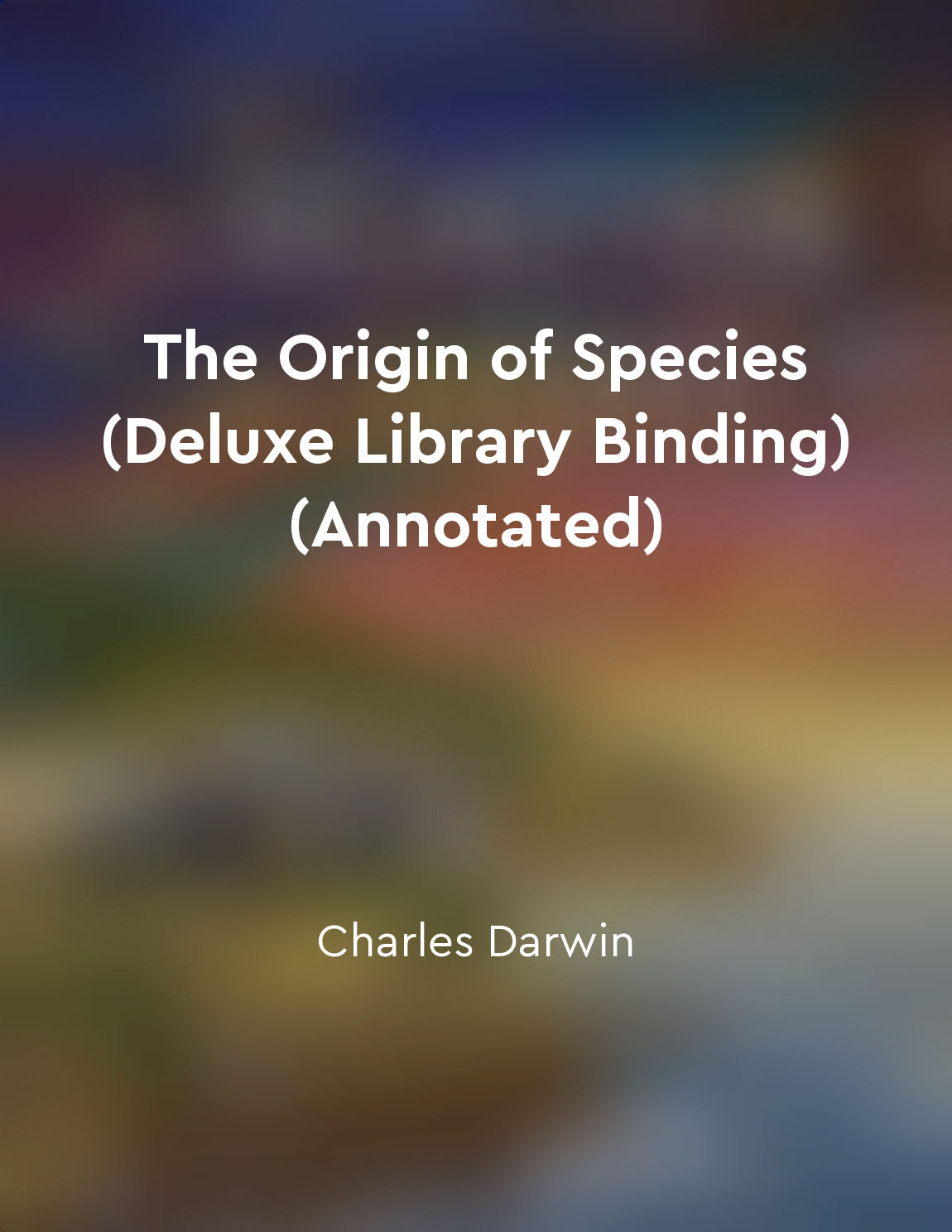Beneficial traits are passed on to offspring from "summary" of The Origin of Species (Deluxe Library Binding) (Annotated) by Charles Darwin
The process of evolution revolves around the transmission of traits from one generation to the next. This passing on of characteristics, known as heredity, is a fundamental concept that underpins the theory of natural selection. Essentially, individuals who possess traits that are advantageous in their environment are more likely to survive and reproduce. As a result, these beneficial traits are passed on to their offspring, creating a population with an increasing prevalence of advantageous characteristics over time. The mechanism by which these beneficial traits are passed on is through the inheritance of genes. Genes are the units of heredity that contain the instructions for specific traits. Offspring inherit a combination of genes from their parents, which determines their own unique set of characteristics. If an individual possesses a gene that confers a survival advantage, such as the ability to camouflage or resist disease, they are more likely to pass this gene on to their offspring. Over many generations, the accumulation of advantageous traits within a population can lead to significant changes. This process, known as adaptation, is driven by the selective pressures of the environment. Individuals with traits that enhance their survival and reproductive success are more likely to pass on their genes, resulting in a population that is better suited to its surroundings. It is important to note that not all traits are beneficial, and not all traits are inherited in a straightforward manner. Some characteristics may be neutral or even detrimental to an individual's survival. Additionally, the inheritance of traits is not always predictable, as genetic variation and other factors can influence the expression of certain characteristics.- The concept that beneficial traits are passed on to offspring lies at the heart of evolutionary theory. Through the process of natural selection, individuals with advantageous traits are more likely to survive and reproduce, leading to the transmission of these beneficial characteristics to future generations. This ongoing cycle of inheritance and selection drives the diversity and adaptation of life on Earth.


